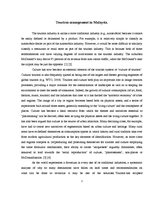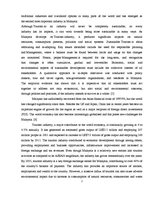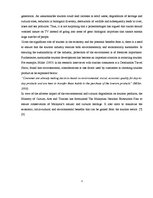As the world experiences a downturn in every one of its traditional industries, a systematic
analysis of why so many destinations have fallen on hard times and recommendations on
what can be done to revitalize it may be one of the solutions. Tourism has eclipsed
traditional industries and livelihood options in many parts of the world and has emerged as
the second most important industry in Malaysia.
Although Tourism as an industry will never be completely sustainable, as every
industry has its impacts, it can work towards being more sustainable in many ways. As
Malaysia develops its Tourism industry, it produces significant impacts on natural
resources, consumption patterns, pollution and social systems. Sustainable Tourism is about
refocusing and re-adapting. Key issues identified include the need for responsible planning
and Management, where a balance must be found between limits and usage so that changes
are monitored. Hence, proper Management is required for the long-term, and recognition
that changes is often cumulative, gradual and irreversible.…
The tourism industry is unlike a more traditional industry (e.g., automobile) because it cannot be easily defined or delineated by a product. For example, it is relatively simple to classify an automobile dealer as part of the automobile industry. However, it would be more difficult to similarly classify a restaurant or retail store as part of the tourism industry. This is because both of those establishments will have varying degrees of involvement in the tourism industry. The suburban McDonald’s may derive 95 percent of its revenue from non-visitor traffic, while the McDonald’s near the airport may be just the opposite. [1] [2]




